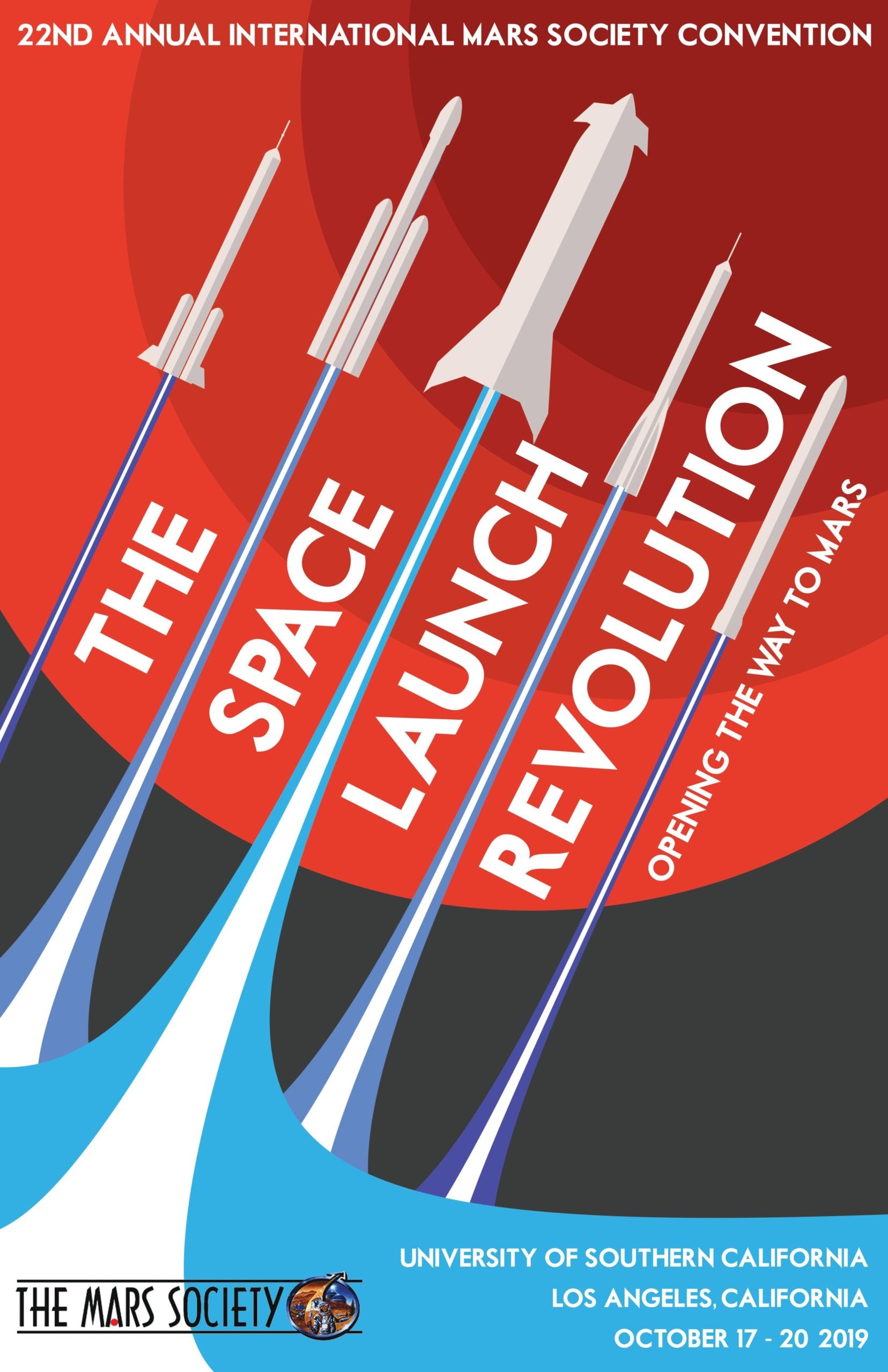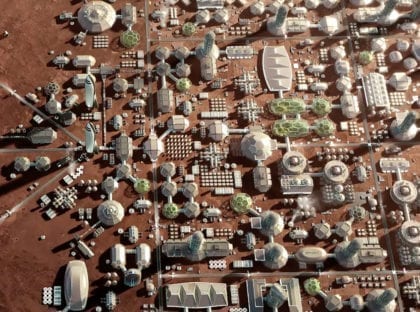
25 teams, including entrants from the U.S., the U.K., Japan, Poland, France, Switzerland, Sweden, Finland and Israel, have been selected out of a field of 100 competitors as semi-finalists in the Mars Society’s Mars Colony Prize design contest.
The Mars Colony Prize design contest challenged people from all walks of life anywhere in the world to design a 1,000 person Mars colony, with design criteria including technical merit (40 points), economic viability (30 points) and social, political, and aesthetic considerations (10 points each). The semi-finalists were chosen on the basis of their 20 page design studies as the top 4-6 out of five groups of twenty, each evaluated by two judges.
Now all 25 will be evaluated by all ten judges to narrow the field down to 8-10 finalists who will be invited to present their concepts in person before the judges at the International Mars Society Convention at the University of Southern California, October 17-20. The winners will then be announced at the conference banquet on the evening of Saturday, October 19th, with the first prize winner receiving $10,000, the second $5,000 and the third $2,500.
All the semi-finalists will be invited to have their design papers included in a book, “Mars Colonies: Plans for Settling the Red Planet,” to be published by the Mars Society.
A list of the semi-finalists is below (in alphabetical order by team/individual name):
| Country | Team or Individual Name | (For Teams Only) Names of all Team Members |
| USA | Alex Dworzanczyk | |
| Finland | Brotherhood of Romulus and Remus | Tuomas Lehtinen, Kartik Naik, Samuel Ocaña Losada amd Florian Reiner |
| USA | Chris Wolfe | |
| USA | CrowdSpace | Oleg Demidov, Ray Mercedes, Alexander Morozov, Vitalii Pashkin, Michael Denisov, Nata Volkova, Annet Nosova, Kristina Karacharskova, Tatiana Schaga |
| USA | Emerging Futures LLC | Jeffery Greenblatt, Akhil Rao |
| United Kingdom | Endeavour | Silviu-Vlad Pirvu, Mateusz Portka, Eduard-Ernest Pastor, Sławomir Tyczyński, Ibok Kegbokokim, Roxana Lupu |
| Japan | Hiroyuki Miyajima | Reiji Moroshima, Tomofumi Hirosaki, Shunsuke Miyazaki, Mayumi Arai, and Takuma Ishibashi |
| Poland | Ideacity | Justyna Pelc, Beata Suścicka, Magdalena Kubajewska, Piotr Torchała, Andrzej Reinke |
| USA | James D. Little | |
| USA | Jason Preston | |
| USA | Kent Nebergall | |
| Switzerland | LET IT BE | Pierre BRISSON / Richard Heidmann / Tatiana VOLKOVA |
| Israel | MarsKibu | Maayan Aharoni, Nitzan Anav, Neal Fischer, Eldar Gantz, Noa Guy, Yuval Porat, Liran Renert, Hilel Rubinstein, Eran Schenker, Hila Sharabi, Alon Shikar, Mikhail Raizanski, Doron Landau, Reut Sorek-Abramovich, Moti Cohen, David Warmflash, Helen Wexler, Moshe Zagai |
| USA | MIT Star City | George Lordos, Alexandros Lordos |
| USA | Nergal Mars Settlement | Audrey Douglas, Cassandra Plevyak |
| USA | Pesca | Vincenzo Donofrio, Meghan Kirk |
| USA | Stefanie Schur | |
| USA | Steve Theno, PE | |
| USA | Team Bold | Wise, Saffel, Fagin, Livermore, Davis |
| USA | Team Bubolaq | Stellie Ford, Tessa Young, Julianna Ricco |
| Sweden | Team Dvaraka | Bhardwaj Shastri, Arvind Mukundan, Alice Phen, Akash Patel, Heeral Bhatt |
| FRANCE | Team ENSC | Caroline Cavel, Laetitia Calice, Adrien Leduque, Mateo Mahaut, Jean-Marc Salotti |
| Australia | Team Spaceship | Robert Mahoney, Alex Bryant, Matthew Hayward, Tim Mew, Thomas Green, Josh Simmich |
| USA | Wesley Stine | |
| Poland | Wroclaw University of Science and Technology | Amanda Solaniuk, Anna Wojcik, Joanna Kuzma, Natalia Cwilichowska, Katarzyna Lis, Slawek Malkowski, Dariusz Szczotkowski, Szymon Loj, Orest Savystskyi, Dominik Liskiewicz, Wojciech Fikus, Jakub Nalewaj, Ania Jurga, Leszek Orzechowski, Bartosz Drozd, Paweł Gorniak, Krzysztof Ratajczak, Paweł Piszko, Maciej Piorun, |
Commenting on the results, Mars Society President Dr. Robert Zubrin said: “I’m enormously impressed by the quality of the design studies submitted. The teams investigated all aspects of Mars colonization, and many found unique new approaches in all sorts of areas. There were so many great proposals that it was painful to be forced to narrow the field. It was terrific to see how the challenge of starting a new branch of human civilization and beginning our future history as a space-faring species has inspired and mobilized the talent, hopes, and dreams of all kinds of people from all over the world. It really shows how Mars can bring humanity together.”
Image: SpaceHab.com


